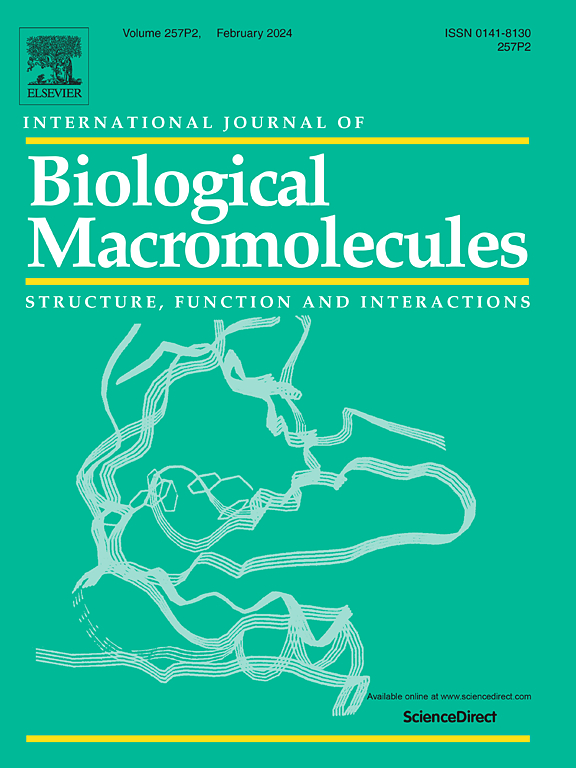Effect of deep eutectic solvents on activity, stability, and selectivity of enzymes: Novel insights and further prospects
IF 8.5
1区 化学
Q1 BIOCHEMISTRY & MOLECULAR BIOLOGY
International Journal of Biological Macromolecules
Pub Date : 2025-01-01
DOI:10.1016/j.ijbiomac.2024.138148
引用次数: 0
Abstract
Deep eutectic solvents (DESs) have been extensively concerned since 2008 as reaction media in biocatalysis because of their excellent solvent performances. Here, we try to clarify the effects of DESs on the catalytic properties, structure, and conformation of enzymes. Through comprehensive analysis, it is found that the catalytic properties of enzymes can be designed in different DESs through modulating the hydrogen bond acceptors, hydrogen bond donors, and their molar ratio. Structural changes of different enzymes in various DESs are not always consistent, which may be attributed to the original structure of enzymes, DES composition, and the interactions between enzymes and DESs. Moreover, we try to elucidate how DESs interact with varying amounts of water, and furthermore how water in DES affects the catalytic properties of enzymes. The available researches indicate that proper amount of water can integrate into the network of DESs and strengthen the hydrogen-bonding interactions while excessive water will destroy the integrity of DESs. Water affects the performance of enzymes in two possible ways: 1) affecting enzyme affinity and structure directly; 2) influencing the properties of DESs, thus modulating the efficiency of enzymes. This review paves road for researchers to design DESs with desired properties for specific applications.
深共晶溶剂对酶的活性、稳定性和选择性的影响:新的见解和进一步的展望。
自2008年以来,深共晶溶剂因其优异的溶剂性能在生物催化领域得到了广泛的关注。在这里,我们试图阐明DESs对酶的催化性能、结构和构象的影响。综合分析发现,通过调节氢键受体、氢键给体及其摩尔比,可以在不同的DESs中设计酶的催化性能。各种DESs中不同酶的结构变化并不总是一致的,这可能与酶的原始结构、DES的组成以及酶与DESs的相互作用有关。此外,我们试图阐明DES如何与不同数量的水相互作用,以及DES中的水如何影响酶的催化性能。现有研究表明,适量的水可以整合到DESs的网络中,加强氢键相互作用,而过量的水会破坏DESs的完整性。水通过两种可能的方式影响酶的性能:1)直接影响酶的亲和力和结构;2)影响DESs的性质,从而调节酶的效率。这一综述为研究人员设计具有特定应用所需性能的DESs铺平了道路。
本文章由计算机程序翻译,如有差异,请以英文原文为准。
求助全文
约1分钟内获得全文
求助全文
来源期刊
CiteScore
13.70
自引率
9.80%
发文量
2728
审稿时长
64 days
期刊介绍:
The International Journal of Biological Macromolecules is a well-established international journal dedicated to research on the chemical and biological aspects of natural macromolecules. Focusing on proteins, macromolecular carbohydrates, glycoproteins, proteoglycans, lignins, biological poly-acids, and nucleic acids, the journal presents the latest findings in molecular structure, properties, biological activities, interactions, modifications, and functional properties. Papers must offer new and novel insights, encompassing related model systems, structural conformational studies, theoretical developments, and analytical techniques. Each paper is required to primarily focus on at least one named biological macromolecule, reflected in the title, abstract, and text.

 求助内容:
求助内容: 应助结果提醒方式:
应助结果提醒方式:


